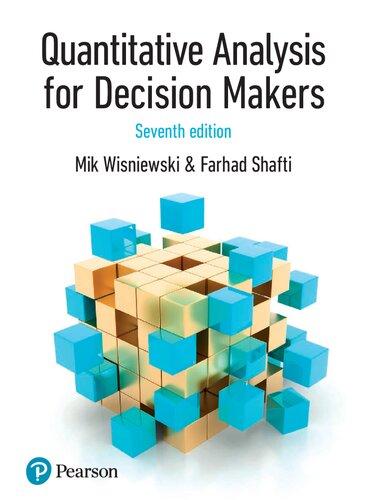A small electrical repair shop finds it has two main types of work. Major and minor repairs.
Question:
A small electrical repair shop finds it has two main types of work. Major and minor repairs. Customers bring items in for repair: TVs, DVD players, etc. require major repair; other repairs are classed as minor. At present the shop has more business than it can handle and is trying to prioritise the work it should do. The firm charges £25 per hour for effecting a major repair and £10 per hour for a minor one. The shop currently has two trained repair engineers, who each work a 40-hour week. The shop will not allow overtime. The manager of the store has the following requirements:
● Repair work must generate at least £800 per week income.
● Major repairs should form at least 60 per cent of the weekly work.
● Minor repairs should form at least 30 per cent of weekly work.
Hours per batch Stage Product A Product B Hours available Turning 12 18 240 Grinding 30 45 450 Polishing 20 60 480 Finishing 40 30 480
(a) Formulate this problem in terms of determining the revenue-maximising combination of the two types of work on a weekly basis.
(b) Solve the problem graphically.
(c) Confirm the solution using simultaneous equations.
(d) Identify the binding and non-binding constraints.
(e) Undertake sensitivity analysis on each of the binding constraints and evaluate the management information that this generates.
(f) What is it worth to the company to allow the engineers to work overtime?
Step by Step Answer:

Quantitative Analysis For Decision Makers
ISBN: 9781292276618
7th Edition
Authors: Mik Wisniewski, Dr Farhad Shafti






